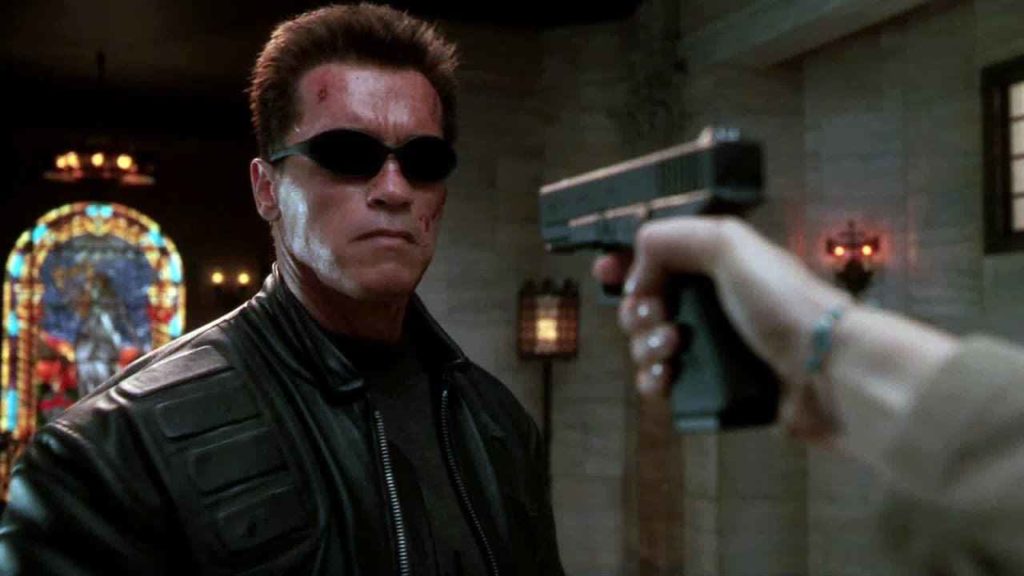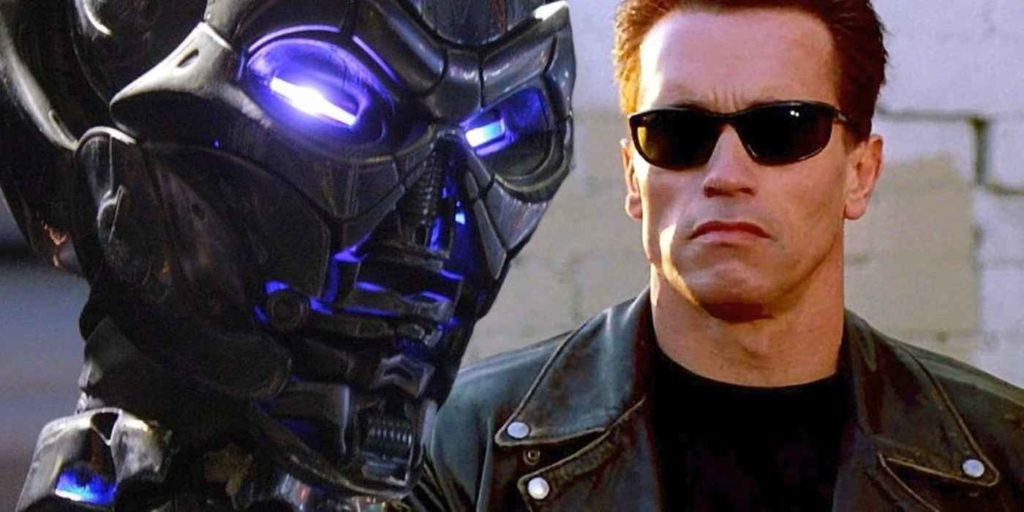Although Terminator 3: Rise of the Machines has a great ending, the film’s effective twist, unfortunately, contradicts Terminator 2: Judgment Day. While a box office success, Terminator 3 is a sequel that, in hindsight, perhaps doesn’t get the respect it deserves. This is especially true when considering the disappointment of Terminator Salvation and Terminator Genisys. However, for all its plus points, Terminator 3 actually undercuts some of the series’ most crucial elements.
The Challenge of Following Classics
In many ways, Terminator 3 always faced a difficult task – most notably perhaps because the first two Terminator movies are considered classics. A further complication was the decision to replace director James Cameron, who not only directed the first two Terminator movies but also co-wrote them, with Jonathan Mostow.
No one knows how to make a Terminator movie better than the creator of the franchise, and in fact, at one point Cameron did almost helm the third Terminator installment as well. Sadly, it wasn’t meant to be, although Cameron encouraged his close friend Arnold Schwarzenegger to return for Terminator 3, if only for the large paycheck being offered.

The Merits of Terminator 3
However, even if it didn’t quite measure up to Terminator 2, Terminator 3 wasn’t without its merits. Most notable were some highly thrilling action sequences, and the addition of wife Kate Brewster to the John Connor lore. Best of all though was Terminator 3’s ending, which turned things upside down.
Just when John and Kate thought they were trying to stop Skynet’s rise, it was revealed that Judgment Day could not be averted, and that the T-800 had instead been ensuring that the two were inside a secure facility when nuclear war began. As surprising as that twist was though, it wasn’t without issues, as the idea that Judgment Day is inevitable flies in the face of Terminator 2’s central message – that the future can be altered.
The Central Message of Terminator 2
Terminator 2 spends much of its running time hammering home the idea that the future is not set, and that Sarah and John Connor have no fates but what they make for themselves. This idea was also touched on in the first Terminator but really became the focus of the sequel.
The entire plot of Terminator 2 is based on the notion that Judgment Day can be stopped, and that Skynet’s rise can be prevented. That’s part of what makes the final scenes, in which the reprogrammed T-800 sacrifices its existence to make sure the Connors succeed, both bittersweet and triumphant.

Undesirable Consequences of Terminator 3’s Ending
As surprising and thought-provoking as it is, Terminator 3’s ending effectively destroys the entire “no fate but what we make” line of thinking. Instead, Terminator 3 undoes each and every bit of success Sarah and John had previously, insisting that the downfall of mankind and the rise of a malevolent A.I. is an event that can’t be averted, only delayed.
In that way, it almost makes Terminator 2’s story feel pointless, as nothing the Connors did amounted to anything in the long run. Interestingly, James Cameron himself would bring in some of these same downbeat Terminator 3 elements to 2019’s Terminator: Dark Fate, which had John Connor die early on and replaced Skynet’s rise with the rise of a different A.I. called Legion. Given this, it would seem the Connors just can’t win in any scenario, despite their sincere efforts in Terminator 2.

Terminator 3’s twist ending poses a significant contradiction to the central message conveyed by Terminator 2. The second film in the franchise emphasizes that the future is not predetermined and that Sarah and John Connor have the power to shape their own destinies. This theme is central to the plot, as Sarah and John strive to prevent the catastrophic Judgment Day and the subsequent rise of Skynet. The self-sacrifice of the reprogrammed T-800 in the final scenes of Terminator 2 exemplifies the bittersweet and triumphant nature of their mission.
However, Terminator 3’s ending disrupts this empowering message. By revealing that Judgment Day cannot be averted and that the T-800’s mission was instead to ensure the safety of John and Kate in a secure facility, the film suggests that the downfall of humanity and the rise of a malevolent artificial intelligence are inevitable. This contradicts the core theme of Terminator 2, which asserts that the future can be altered through human agency.
The undesired consequences of Terminator 3’s twist ending make Terminator 2’s story feel somewhat futile. It diminishes the significance of the Connors’ previous victories and implies that their efforts were ultimately in vain. Interestingly, James Cameron himself incorporated similar downbeat elements in 2019’s Terminator: Dark Fate. In this film, John Connor’s early demise and the replacement of Skynet’s rise with the emergence of a different AI called Legion further reinforce the notion that the Connors are trapped in a cycle of inevitable defeat.

Final Thoughts
While Terminator 3: Rise of the Machines boasts a compelling twist ending, it contradicts the central message of Terminator 2: Judgment Day. The belief in altering the future and shaping one’s destiny is undermined by Terminator 3’s insistence on the inevitability of Judgment Day.
This contradiction raises questions about the overall significance of the Connors’ struggles and the ultimate outcome of their battles against the forces of artificial intelligence.
FAQs (Frequently Asked Questions)
- Did Terminator 3 receive the recognition it deserved? Terminator 3: Rise of the Machines, despite its merits, often does not receive the recognition it deserves due to the high expectations set by its classic predecessors and the disappointment of subsequent films in the franchise, such as Terminator Salvation and Terminator Genisys.
- What were the strengths of Terminator 3? Terminator 3 showcased thrilling action sequences and introduced the character of Kate Brewster, adding depth to the John Connor mythology. The film’s twist ending, in particular, turned the narrative upside down and provided an unexpected surprise for viewers.
- What is the central message of Terminator 2: Judgment Day? Terminator 2 emphasizes the idea that individuals have the power to shape their own destinies and alter the future. The film’s core message revolves around the belief in “no fate but what we make.”
- How does Terminator 3’s ending contradict Terminator 2’s message? Terminator 3’s ending suggests that Judgment Day is an inevitable event that cannot be averted, contradicting the central theme of altering the future depicted in Terminator 2.
- Why did James Cameron incorporate similar elements in Terminator: Dark Fate? James Cameron, who played a significant role in the creation of the Terminator franchise, incorporated similar downbeat elements in Terminator: Dark Fate to explore different narrative avenues and challenge the idea of altering the future.

